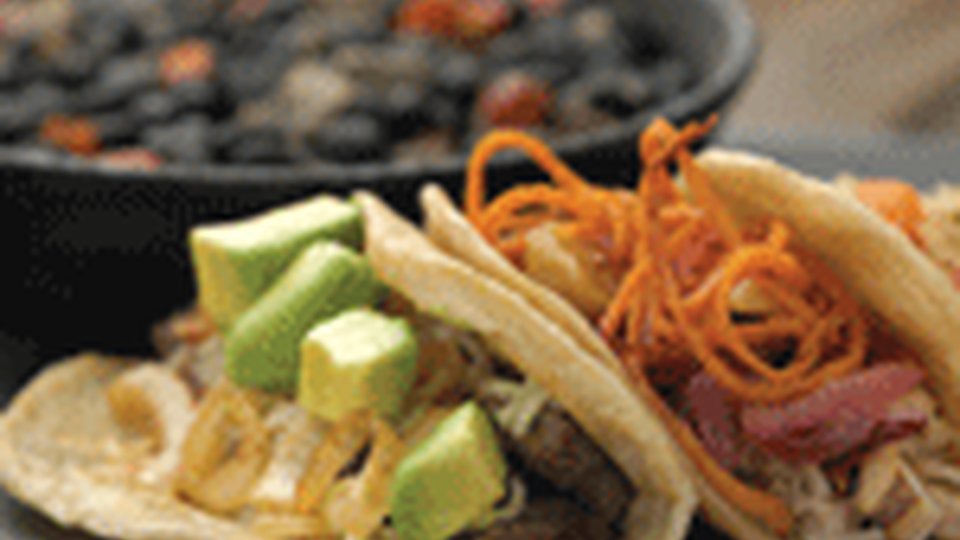Article
Tin Star embarks on Texas-sized turnaround

February 20, 2011
By Steve Coomes
Like a lot of great ideas, the concept of Tin Star Sizzle, Smoke and Salsa was great, but not perfect, out of the box. Founder Rich Hicks’ goal started out simple in 1999: elevate tacos, quesadillas, soups and salads from the uninspiring taqueria to an attractive fast casual platform that would appeal to mainstream audiences.
To grow his concept, he drew the adoration and investment dollars of multiple franchisees, who signed on to scatter Tin Stars across the American landscape. But, that growth strategy was not only short-lived, but nearly tragic for the small chain.
From its Plano, Texas, base of five stores, it couldn’t adequately support far-flung units in Colorado, Florida, Indiana, Nebraska, Nevada and South Carolina, and simply lacked the manpower to really help franchisees, said Greg Cutchall. Cutchall is the owner of Cutchall Management, a multi-concept franchisee of Sonic, Paradise Bakery, Famous Dave’s, Rock Bottom Restaurant and Tin Star units.
“That was a big stumble for Tin Star,” he said. Challenging store-level execution complicated things as well. “As fabulous as the food is, it’s not your typical fast-casual easy execution. And that made things worse.
 |
| Tin Star works hard to differentiate itself through diverse menu. Pictured here: A version of its cheeseburger taco. |
By 2006, Hicks had created a second concept called Mooyah Burgers, and began seeking a buyer for Tin Star. He found one in Mike Rangel, a senior vice president and chief operations officer for the parent company of Lone Star Steakhouse and Texas Land and Cattle Steakhouse. A Dallas resident and fan of Tin Star, Rangel wanted to acquire a restaurant company and go out on his own, and he discussed a buyout with Hicks.
The deal was consummated for an unreported sum in 2008—just as the American economy was hitting the skids. At the time, there were three corporate stores and five franchises, about half the unit count at the company’s peak.
“I definitely wouldn’t say I didn’t have some buyer’s remorse,” Rangel said, laughing. The industry veteran knew there were tough times ahead, but he believed he was well-enough capitalized to push Tin Star forward, albeit in small steps. “We went pretty slow at first to make sure we understood exactly what we bought and what needed to be changed. The concept and the food were right, but we had to focus on operations and create some brand awareness.”
A reorganization
Rangel decided to stop franchising Tin Star until a solid strategy was developed to do so.
“Every location outside of Texas except for one closed within 18 months of opening. We knew that part of the problem was in how spread out the earlier restaurants and we weren’t repeating that,” he said.
Rangel’s team focused first on the basics of food consistency, restaurant cleanliness and retraining employees. Then came a name change. Tin Star Sizzle, Smoke and Salsa didn’t describe the concept’s core attributes on its own, he said, and so the new moniker of Tin Star Taco Bar soon followed.
Like nearly every other restaurant concept, Tin Star’s flagging sales in the recession forced Rangel’s team to be creative with marketing. New efforts using Twitter, Facebook and Foursquare began, and fans and followers were encouraged to post pictures on Tin Star’s Taco Blog.
“We now do a quarterly food program where we roll out new tacos, enchiladas and salads, and we’ve had guests help us name them,” he said. “Social media has become a great way to engage with our fans and brand advocates.”
Newly named items include the Brisky Business and The Commander tacos.
Cutchall is pleased with Rangel’s leadership and the direction Tin Star is headed.
As of last year, Tin Star returned to franchising and added two units. An 11th store is slated to open in February, and a few others could follow this year.
“I believe they’ve got the right guys at the helm now, and they’ve been very supportive to franchisees when we needed them,” Cutchall said. “They’re very hands-on. The previous owners were great visionaries, but not maybe as operationally focused as the new group.”
Unlike Hicks, Rangel is determined to grow the company from Dallas outward first, then to neighboring Texas cities followed by moves to neighboring states. Developing greater market concentration will boost brand recognition and make advertising buys more affordable. Plus, with a host of similar concepts just starting up in existing Tin Star markets, Rangel knows he needs to win the fan battle quickly.
“We’ve had six competitors open up around us within the last 15 months,” Rangel said. “But I believe that if we stay true to our values and the integrity of the brand, we can do very well.”
Cutchall believes Tin Star’s unique market position on the upper end of the fast casual range (check average is $9.40, and each outlet serves margaritas and beer) will help it succeed against even better-known burrito concepts. The menu also features a diversified offering of cheeseburger tacos, quesadillas, gourmet tacos and entrees such as the Fire Grilled Salmon.
 ChatGPT
ChatGPT Grok
Grok Perplexity
Perplexity Claude
Claude












